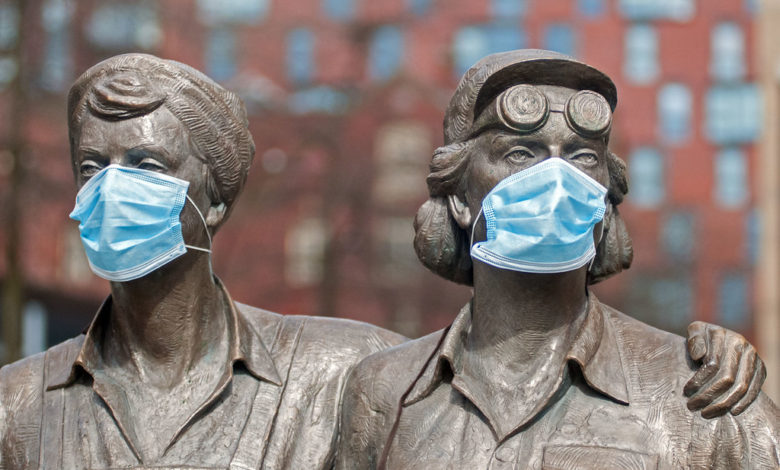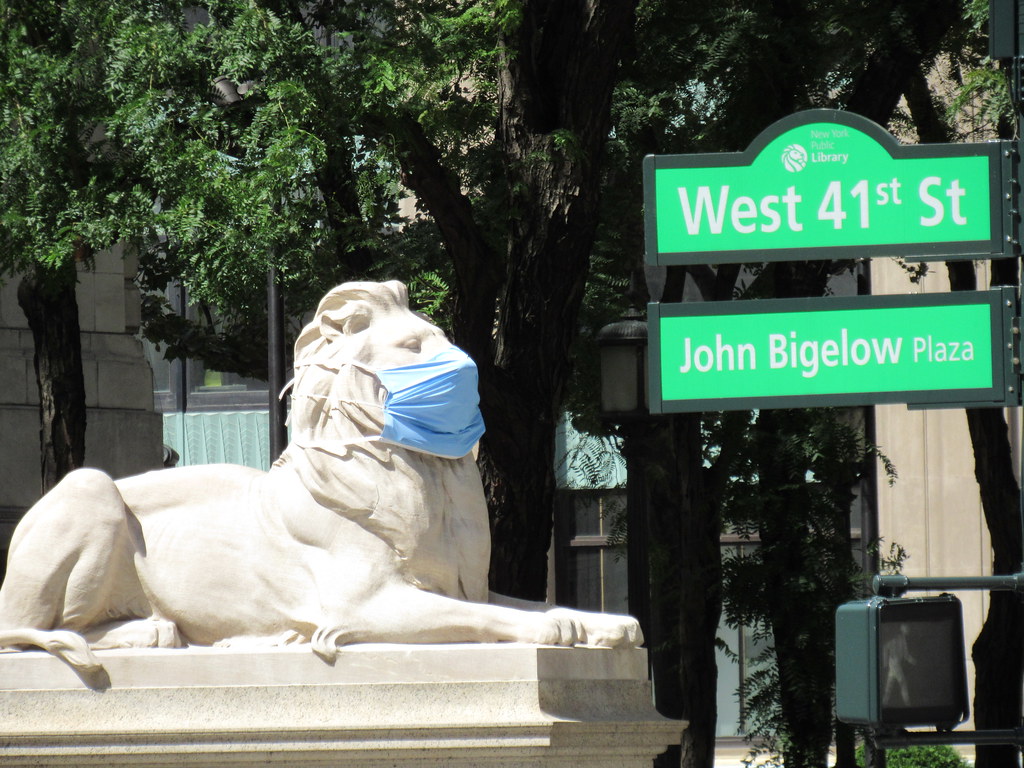Do I Still Need to Wear a Mask if I Had the Covid-19 Vaccine?

If you’ve already had the Covid-19 vaccine or if you’ve already had the virus, do you still need to mask up in public or with people outside of your social bubble? The answer is yes, and there are both scientific and ethical reasons for you to continue to wear your mask for the near future.
Just so we’re clear, wearing masks is key to getting through this pandemic. Initially, the messaging we got around wearing masks was that they would reduce your chance of spreading the virus (by blocking the droplets coming from your mouth), but later researchers found that wearing masks also reduces your chances of becoming sick or may even lower the severity if you do. While you’re at it, be a Good Doobie and make sure it’s over your nose too.
If you’ve had the vaccine, you aren’t immediately protected from getting Covid-19. In fact, it takes your body at least 10-14 days to build up immunity, and until that time you are still susceptible to the virus. And with some vaccines, you need a second dose to have the maximum immunity, and again you have to wait 2 weeks after your final dose to get to that level. If you’ve been sick, it takes about the same amount of time to generate antibodies (although you may not have the same level of immunity as the vaccine). But let’s assume you are at the point where you have built up immunity, THEN do you still need to mask up?
First of all, we don’t know how the vaccine affects viral transmission. It’s entirely possible that you could get sick for a day and not have symptoms while your body is attacking the virus (this is called the Secondary Immune Response), but could still be contagious (shedding virus). One vaccine study (AstraZeneca) did track whether or not their vaccine affected viral transmission (that is, the ability of someone who is vaccinated to still spread the virus while being protected) and they found it was reduced for vaccinated people, but Pfizer and Moderna vaccine studies did not track this. As we collect more data on all of the vaccines we will be able to figure this out, but for now, you definitely need to keep your mask on to protect others, whether you are immune or not.

Secondly, there is a small chance the vaccine didn’t protect you as much as you think. Everyone’s immune systems react differently. Maybe the vaccine you just received wasn’t stored properly and degraded slightly? Even if a vaccine is 95% effective, that means that there were some unlucky people who were fully vaccinated who still got sick, and you can’t be sure what category you’re in (without further testing). If you already had the virus, you also can’t be sure of your level of immunity. And even though getting re-infected is rare, it still happens. Wearing the mask gives you an extra layer of protection while we’re getting through this pandemic.
There are also ethical reasons why you should wear your mask (even if you have full immunity). We can’t tell the difference between people who are immune and those who aren’t just by looking. If you walk around without a mask while the majority of people cannot, at best it’s just plain rude (and at worst it makes you look like an anti-masker). Even if there were a reliable way to tell if someone was immune, if we allow only them to walk around without masks, it will create a class divide between people who were able to get the vaccine and those who are still waiting.
I know that wearing a mask is inconvenient (believe me, I have to wear mine for my job all day, and I do not enjoy breathing in my hot breath all morning). But until we hear from a reliable scientific source that we can stop (as a whole), we need to keep it up.





Well said, Mary.
I have one quibble with the linked Wired article though, we do have direct information other than press release for the Oxford/AstraZeneca vaccine.
https://www.thelancet.com/journals/lancet/article/PIIS0140-6736(20)32661-1/fulltext
If you tab down to Table 3 and look up 3 paragraphs, there is the information we need:-
“Asymptomatic infections or those with unreported symptoms were detected in 69 participants. Vaccine efficacy in the 24 LD/SD participants was 58.9%….. whereas it was 3.8%…. in the 45 participants receiving SD/SD.”
These are the estimates of vaccine efficacy against asymptomatic infections.
Efficacy was very low with the standard dose protocol as approved for emergency use in the UK, but significant in the very promising but as yet unproven modified low dose/standard dose protocol.
We wait with bated breath for confirmation of the modified protocol in a proper Phase 3 trial.
Still, 60% efficacy against asymptomatic infection is about the level one could achieve using masks alone. While a powerful additional weapon, not sufficient to risk dropping the present non pharmaceutical protective measures of masks and distancing.
But used in addition to present methods, this could give us all the edge to truly drive down the numbers!
What about Béchamp and Stefan Lanka, do they need to mask up and be good doobies?